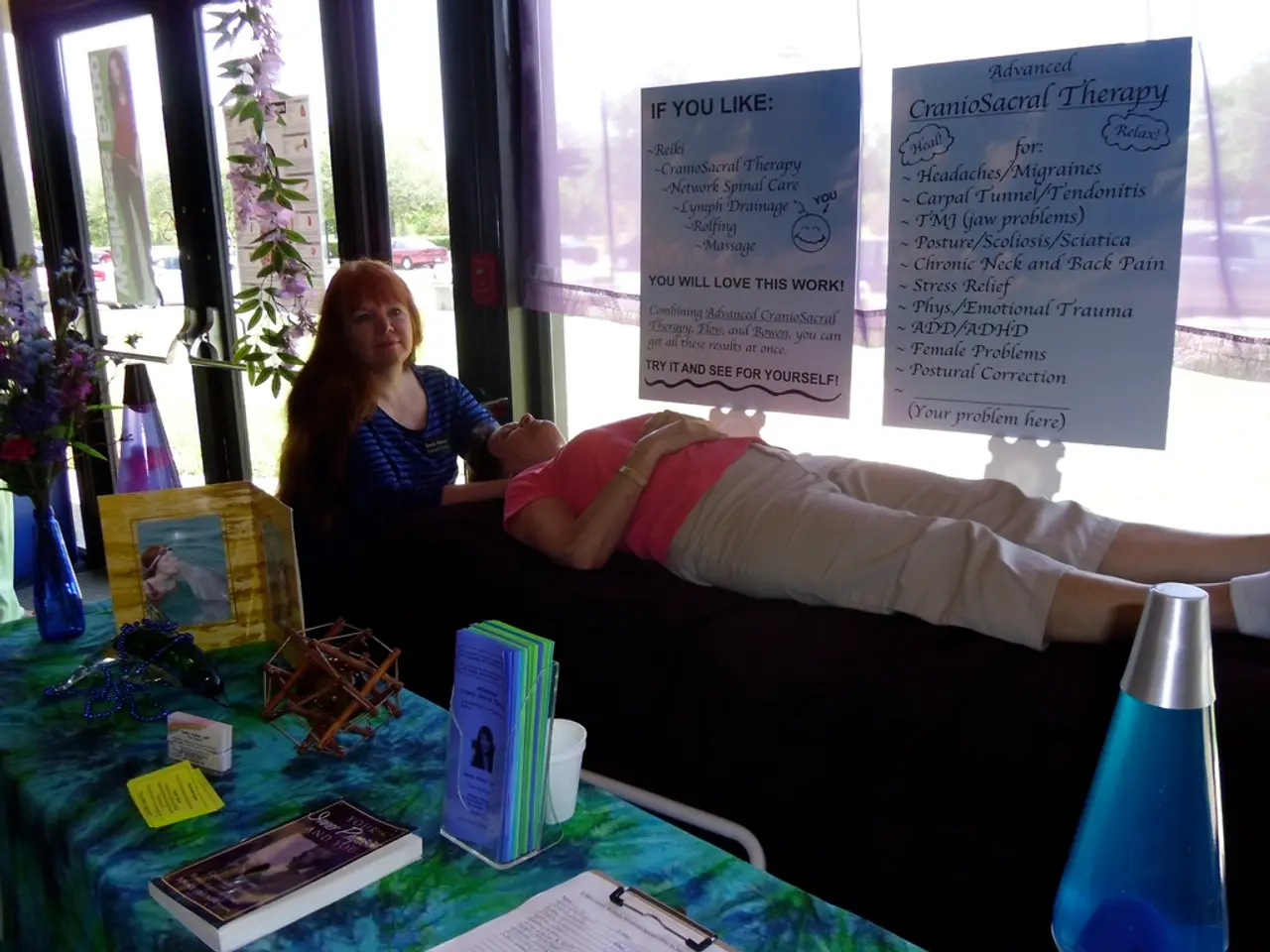Physical Ailments, Root Causes, and Strategies for Managing Depression
Depression, a common mental health condition, is often associated with feelings of sadness, hopelessness, and a lack of interest in activities. However, it can also cause physical symptoms that may be less obvious but can significantly impact a person's daily life.
Help is readily available for those experiencing depression. The 988 Lifeline, Crisis Text Line, Befrienders Worldwide, and local emergency services are just a few resources that provide support. If symptoms are causing concern or are affecting day-to-day tasks, it is advisable to speak with a doctor or mental health professional.
The physical symptoms of depression are primarily caused by biological and neurochemical imbalances in the brain as well as hormonal dysregulation.
Neurotransmitter Imbalances
Depression is strongly linked to disruptions in brain chemicals such as serotonin, dopamine, norepinephrine, and GABA. Low serotonin levels can lead to both appetite changes and problems with sleep. Dopamine deficiency affects motivation and energy levels, contributing to fatigue and lack of pleasure in activities.
Hormonal Disruptions
Hormones including thyroid hormones, cortisol (stress hormone), and sex hormones influence mood and physical symptoms. Thyroid dysfunction can cause fatigue, appetite changes, and depressive symptoms. Cortisol dysregulation due to chronic stress may lead to disrupted sleep patterns and persistent tiredness. Fluctuations in sex hormones also affect mood and can cause appetite and sleep disturbances.
Sleep Changes
Depression often causes fragmented or poor-quality sleep, which in turn worsens fatigue and cognitive functioning. Sleep disturbances include difficulty falling asleep, frequent awakenings, or early-morning awakening.
Appetite Changes
Changes in appetite—either increased or decreased—are influenced by the impact of depression on brain regions that regulate hunger and reward, mediated via neurotransmitter changes. This can result in weight gain or loss and fluctuate eating patterns.
Fatigue
Fatigue in depression is multifactorial: altered brain chemistry, disrupted sleep, hormonal imbalances, and increased inflammatory and stress responses contribute to a persistent feeling of tiredness and low energy despite rest.
In summary, the physical symptoms of depression arise from altered brain chemistry (neurotransmitter imbalances), hormonal fluctuations, and sleep disruptions, which together affect appetite regulation and energy levels, producing fatigue and sleep changes characteristic of depression.
Treatment for depression usually involves a combination of talk therapy and medications. Cognitive behavioral therapy (CBT) is one of the most well-researched options. Not everyone with depression will have obvious physical signs of the condition, and some affected individuals may carry on with their daily activities without appearing to be unwell.
If you or someone you know is experiencing symptoms of depression, remember that help is available. Reach out to a trusted healthcare provider or mental health professional for support.
Mental health professionals often link depression to imbalances in neurotransmitters like serotonin, dopamine, norepinephrine, and GABA, which can contribute to fatigue as a result of low dopamine levels affecting motivation and energy levels.
Depression can also cause hormonal disruptions, such as cortisol dysregulation due to chronic stress, which may lead to disrupted sleep patterns and persistent tiredness, exacerbating feelings of fatigue.




